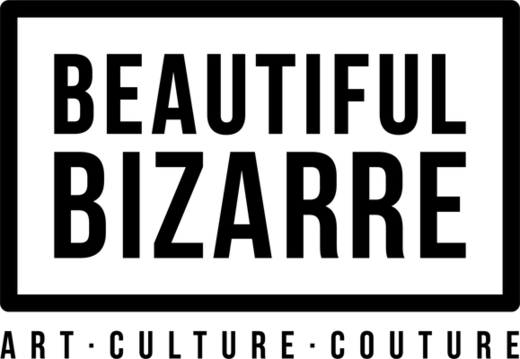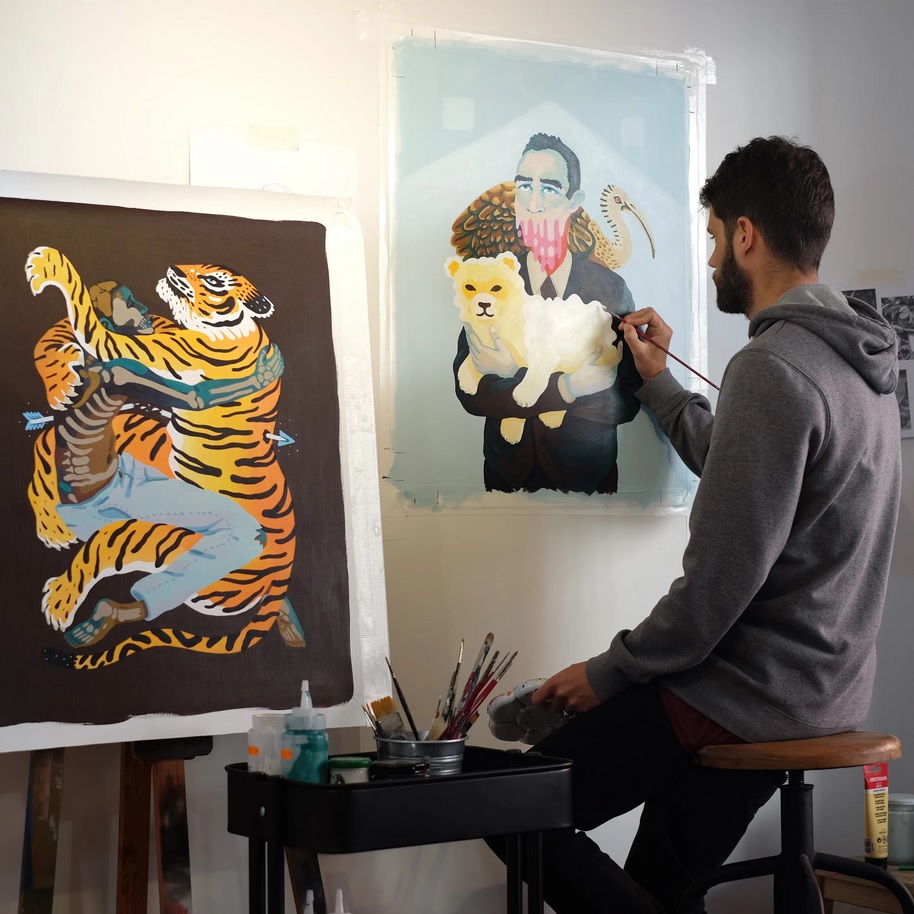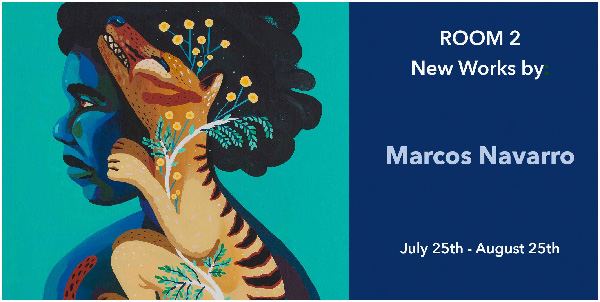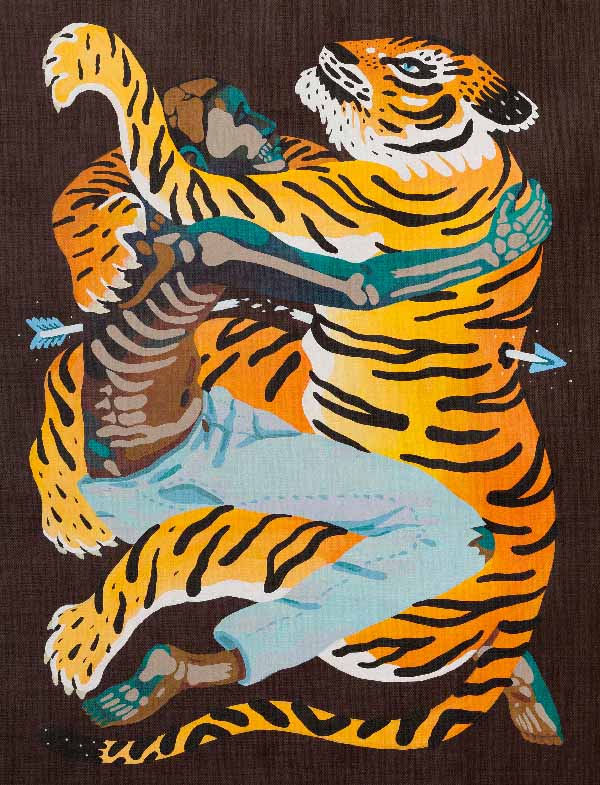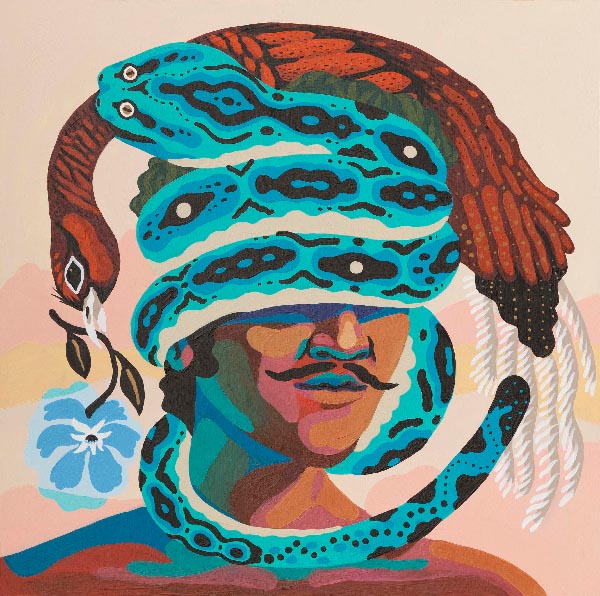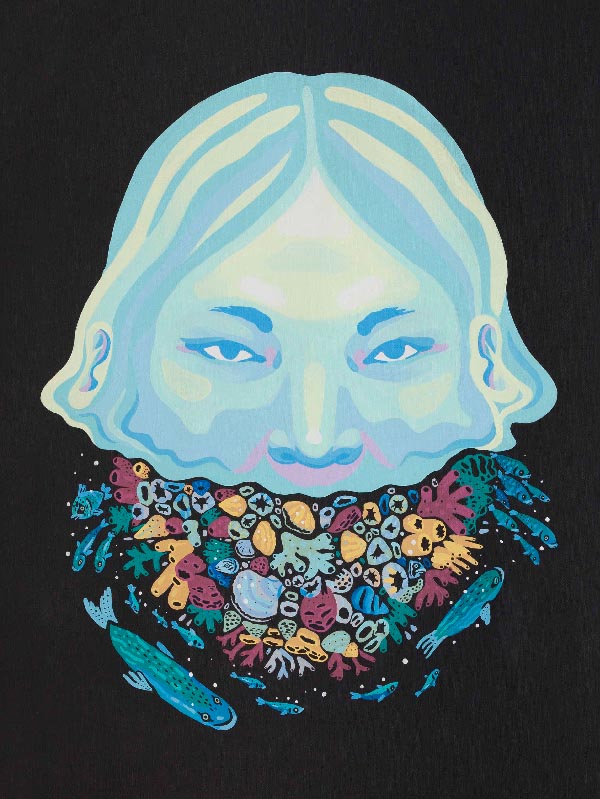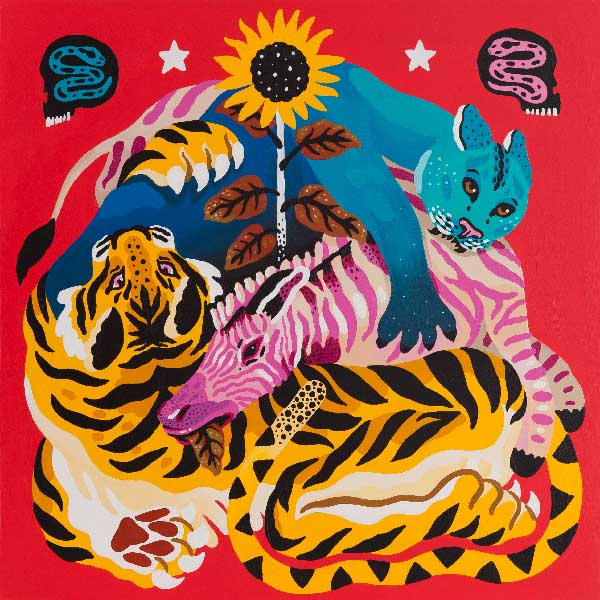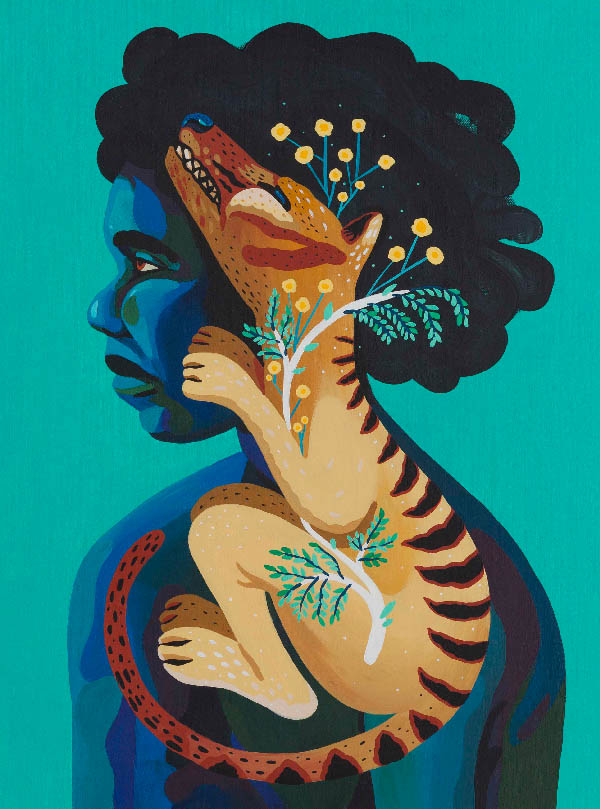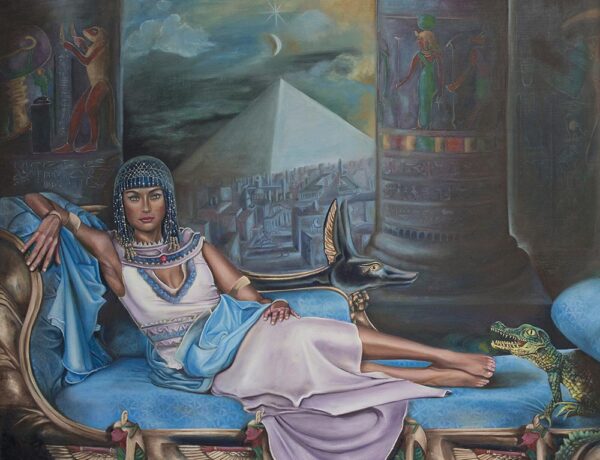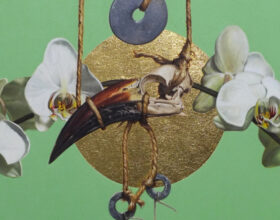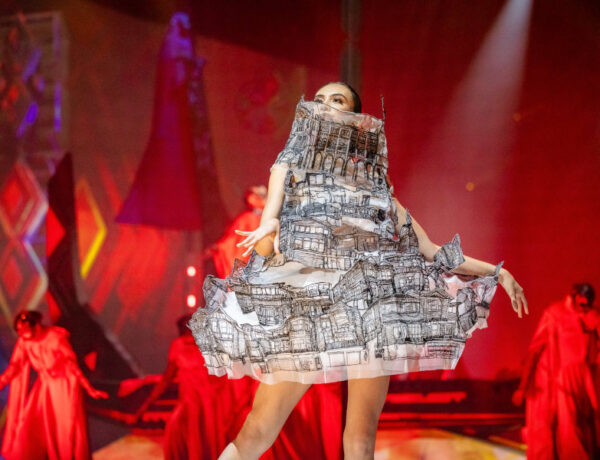Marcos Navarro’s work is a twist of bright graphic compositions. The works fold figures, animals, and nature, built from plush flat plains of color that create these idyllic forms and graphics. But when you begin to look a little closer, these forms and figures begin to reveal their secrets.
Navarro is an artist from Barcelona, who is currently working on the Spanish coast in the idyllic town of San Sebastian. He has put together a series of painting for his first American exhibition displayed at the Talon Gallery in Portland. Below we interview him about his art and the themes of his exhibition.
Marcos Navarro “Broken Cycles”
Opening Reception:
August 29, 2019 | 6pm – 9pm
Exhibition Dates:
July 25 – August 25, 2019
Talon Gallery
2724 NE Alberta Street , Portland Oregon
For additional information and images, please contact Susannah and Neil at [email protected]
JAVA
In ‘Java,’ we see a human and tiger that are entwined, locked in an embrace. The two figures are run through with the bolt of a white arrow. The arrow that links the tangled figures is broken, severing their connection. With a closer look, we start to see the themes of Navarro’s work bleeding through the graphic plains.
Navarro explains his theme of ‘Broken Cycles’ below:
In an increasingly consumerist society, we are all responsible for the continuous waste of natural resources. In complex ways, this dynamic of consumption and competitiveness is intertwined with our lives. As a result of our choices and actions, through a kind of butterfly effect, we are breaking down natures’ cyclic systems.
This is a crucial moment for planet earth and our civilization. I am setting my hopes on a radical change in our living habits and strong social movements, on a global scale, to avoid a fatal end. But using my art in an explicit and simplistic critique of this condition is too obvious. My work is concerned with the results of our behavior and the mistakes we have made in our evolution as a species.
It is not my story, but rather our common story that interests me.
How do you define art?
I believe in art as a form of expression, a tool, and channel to transmit to the world many things, as statements, energy, attitudes, beauty, horror… and as a spectator, I love to see, hear, or touch art that moves me, that makes me feel sad, happy, or nervous. It is good to have our own perception and sensations.
With your work in your exhibition, what have you tried to achieve, communicate, or observe; could you exemplify this using one of the works in the show?
For me, working on my paintings is a path of exploration. So I try to work with different elements as extinct or endangered animals, sometimes portraits of marginal people, and symbols related to our cultures that make a cyclic composition altogether. To be more specific, in my painting “Competition”, I’m using the food chain of these animals to show the greed and competitiveness between social classes, always trying to be the first.
The sunflower represents fortune, and the skulls within snakes are related to the good and the bad.
In your press release, you have noted that your work isn’t a simplistic or explicit critic of the condition, but more complex as it looks at the behaviors and mistakes we have made. What are some of the mistakes and behaviors you have identified? What have you learned about these behaviors and mistakes?
There are so many remarkable mistakes. But definitely the consumerism and this capitalist system, waste of natural resources, this is the worst unsustainable situation. I learned about the causes of extinction, or critically endangered species are due to the over-harvesting, pollution, habitat changes, or illegal poaching.
Maybe just because the Bali Tiger is considered a plague, they kill them all, or because the Black Rhino horns are highly-priced, more than the price of gold, they hunt and sale on Black Market.
Have you yet seen a tentative solution to these behaviors and mistakes?
The only one is to change our habits and lose much comfort and many pleasures. Don’t travel so much, don’t buy a new phone every year, don’t get new clothes every week, don’t eat meat everyday. Slow life is better. We can do our little things, but after all… only governments can make big steps to redirect our situation.
It is normal to have the influence of all these facts on my work.
Marcos Navarro’s Social Media Accounts
Website | Facebook | Instagram
Talon Gallery Social Media Accounts
Website | Facebook | Instagram
Related Articles
 
Exclusive Interview with Edith Lebeau & Ruth Speer: Celebrating Dreamlore @ Talon Gallery
Crouching Animals, Hidden Angels: The Sculptures of Susannah Zucker

